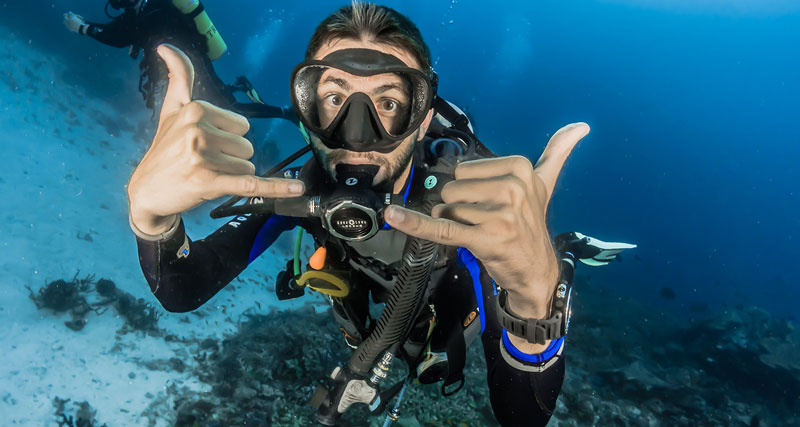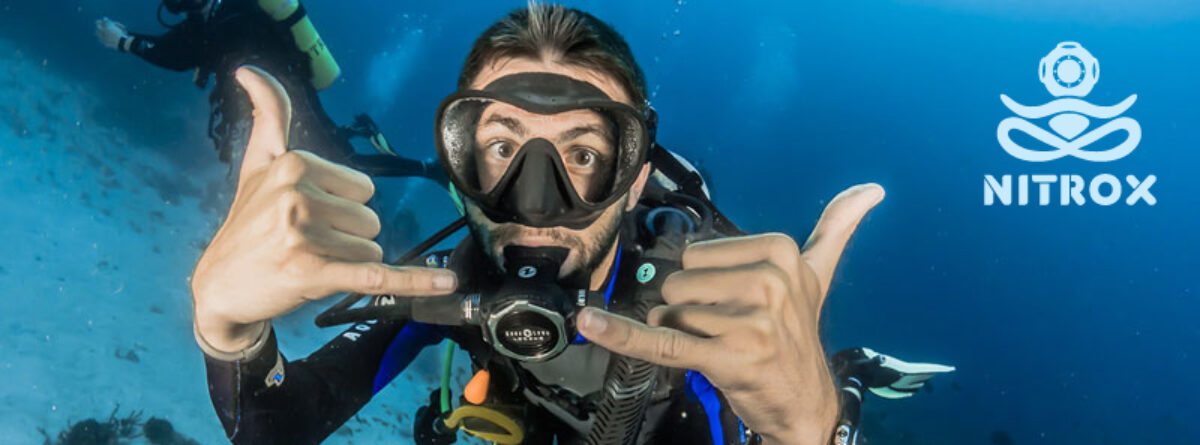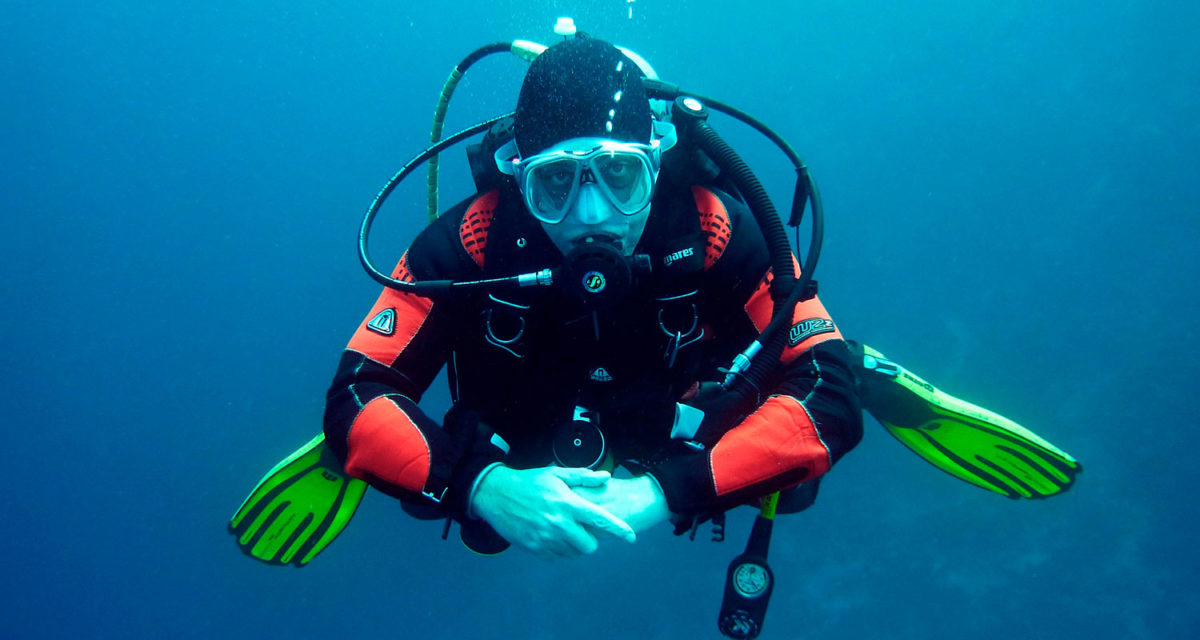Deep dives allow us to experience more excitement, see other marine species and explore unknown areas, but it requires greater precautions. Here are some tips that will make your deep dives safer:
Perform head-down descent
It is the most natural and comfortable way to descend. Also in this way the risk of losing orientation is avoided, and in turn, it is easier to compensate the ears and the mask. On the other hand, if you dive in places where the bottom is fragile, care should be taken when the fins touch the bottom.
Perform the descent and ascent at a slow speed in deep dives
A slow descent prevents decompensation of ears and masks, thus preventing pain and injury. On the other hand, a slow ascent is essential for safe diving. A quick ascent in a deep dive can lead to decompression sickness.
To make a slow and safe ascent you must have been well ballasted, you must use a dive computer. Preferably you should ascend through a reference line. If you don’t have it, the diver has to be very attentive to his buoyancy and his computer.
Slow and deep breathing
While slow and deep controlled breathing is ideal for all types of diving, when deep diving is especially important. This is due to the fact that at greater depth, the air consumption is accelerated and a controlled breathing makes a longer background time possible. In addition, at greater depth, the air becomes denser, so the turbulence of the air passing through the regulator increases. When you take a slow breath, these turbulences decrease. Deep breathing, meanwhile, causes us not to inhale again the dead air containing CO2 accumulated in the regulator.

Be aware of nitrogen narcosis in deep dives
At depths greater than 30 meters, the air we inhale (especially nitrogen) becomes narcotic. This occurs because at high pressures the nitrogen in the air penetrates the lipid structure of the nerve cells. While this effect is harmless and dissipates as soon as we begin to ascend, the results of poor decision making by the drugged diver can be fatal.
Therefore, we must be alert to any symptoms of nitrogen narcosis when we dive more than 3 meters deep. Among the most common symptoms are: Loss of good judgment, feeling of unjustified joy, lack of concern for safety, drowsiness and desire to sleep, anxiety. If we feel any of these symptoms, the ideal is to start the ascent slowly.


